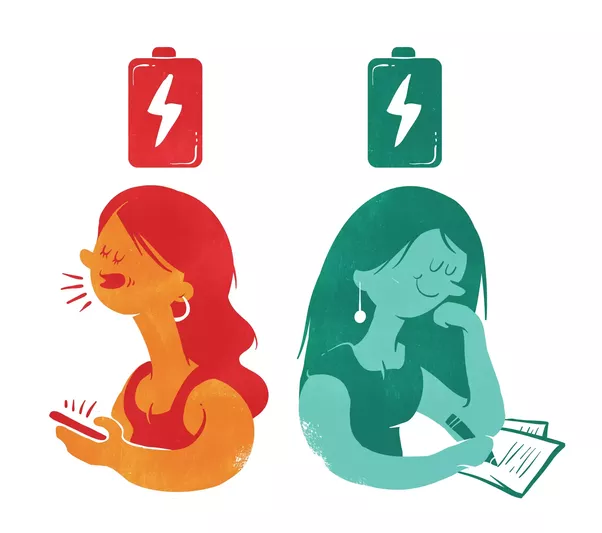An introverts perspective of a chatterbox with Sophia Dembling


After reading “An open letter to people who talk too much” , I decided to search for more work written by Sophia Dembling. Her book, Introverts in Love , sparked my interest and decided to do an interview with Sophia. Along with a ton of other published work, (with many being published in multiple newspapers and magazines), Sophia wrote an interesting book on her transition from being a New Yorker to a Texan. The Yankee Chick’s Survival Guide to Texas is available on Amazon. However, today my interest lies in her experience and work on introverts and extroverts, and in particular when the two meet.
1) Your article “An open letter to people who talk too much” clearly shows your introverted nature. Is your introversion across all domains of your life or more just with conversations / social interactions?
Introversion may manifest itself more strongly in social interactions, but it is a personality trait that permeates all domains of life. For example, Introverts need ample solitude to manage their energy; we enjoy being alone; we tend to be deep thinkers; we are loyal friends (we would rather have one or two close friends than a million acquaintances) … there are lots of ways introversion manifests itself in our lives.
2) You refer to the possibility that talking too much is an anxiety issue, what do you mean by this?
Many people–extroverts and introverts–will chatter when they are nervous. Me included. There are, I suppose, many reasons for this. For one thing, It’s a way of keeping control of the situation. As long as you’re talking, then nobody can spring an unexpected question or idea on you. And some people are simply .
3) Being the extreme opposite of a compulsive talker, do you feel you come across as rude or upset when you speak the minimum amount needed?
Oh yes, absolutely. Introverts are often perceived as rude, unhappy, judgmental–all kinds of not-great things–because we are more likely to sit quietly than throw ourselves into the action. This can make people uncomfortable. Introverts get very, very tired of people asking if we’re OK, or why we look unhappy, or whether we’re having fun. We tend to have fun quietly and not noisily. Although if I get into a really good one-on-one, give-and-take conversation, I have plenty to say. Sometimes I have to rein myself in–even I can get runaway mouth if I get going on about a topic that really interests me.

4) Do you feel it is possible for an extrovert on the extreme side to have a good and working relationship with an introvert on the extreme side? (Not including a professional relationship)?
If they’re extreme extremes it might be difficult. But when I talked to introverts for my book Introverts in Love, I learned that some introverts prefer to be in relationships with extroverts because they like having someone who will pull them out of themselves and play social director. Other introverts want someone who will stay home quietly with them. Of the introverts I spoke to who were in relationships, it was about 50-50 introvert-introvert and introvert-extrovert. Same with the divorced introverts–about half divorced from introverts, about half from extroverts.
5) What would you guess is the reason for someone going into so much depth about stories or speaking for lengthy periods of time, how does it reward or benefit them?
After my post about people who talk to much pissed some people off, I interviewed psychologist Ty Tashiro about his new book, Awkward: The Science of Why We’re Socially Awkward and Why That’s Awesome and we discussed this. He pointed out that people might talk a lot for different reasons. Some of these people are narcissists who don’t care if they’re boring people–they imagine themselves endlessly fascinating. Some might be pulling a power play and are dominating the conversation to dominate the interaction. Some might simply not be tuned in to social cues telling them it’s time to stop talking–those are the awkward people.
6) What kind and effective “escape plans” could you recommend to listeners who have to escape from people who speak too much?
Well, “I have to go to the bathroom” is tried and true. Same with “Excuse me, it’s been great meeting you, but I see someone I need to talk to.” And you can try nonverbal signals–moving away slightly, shifting your attention–but this doesn’t work on everyone. Tashiro suggests that if you’re dealing with an awkward person who simply isn’t picking up on cues, you can be fairly blunt about it, saying something like, “Hey, give me a moment to respond” or something. He says awkward people are fully aware that they’re awkward and are often actually grateful to people who (kindly!) let them know they are unintentionally breaking social rules.
I’m sure we have learnt much about those who seem to talk too much, and I hope this article can provide a better understanding if you are one day faced with a similar situation.
_____________________________________________________________________________________________
Sophia Dembling is a successful author, with multiple books and articles on introversion, as well as many other issues. Some of her books can be bought from Amazon here.
A list of her other books and articles can be found here.
_____________________________________________________________________________________________



Responses